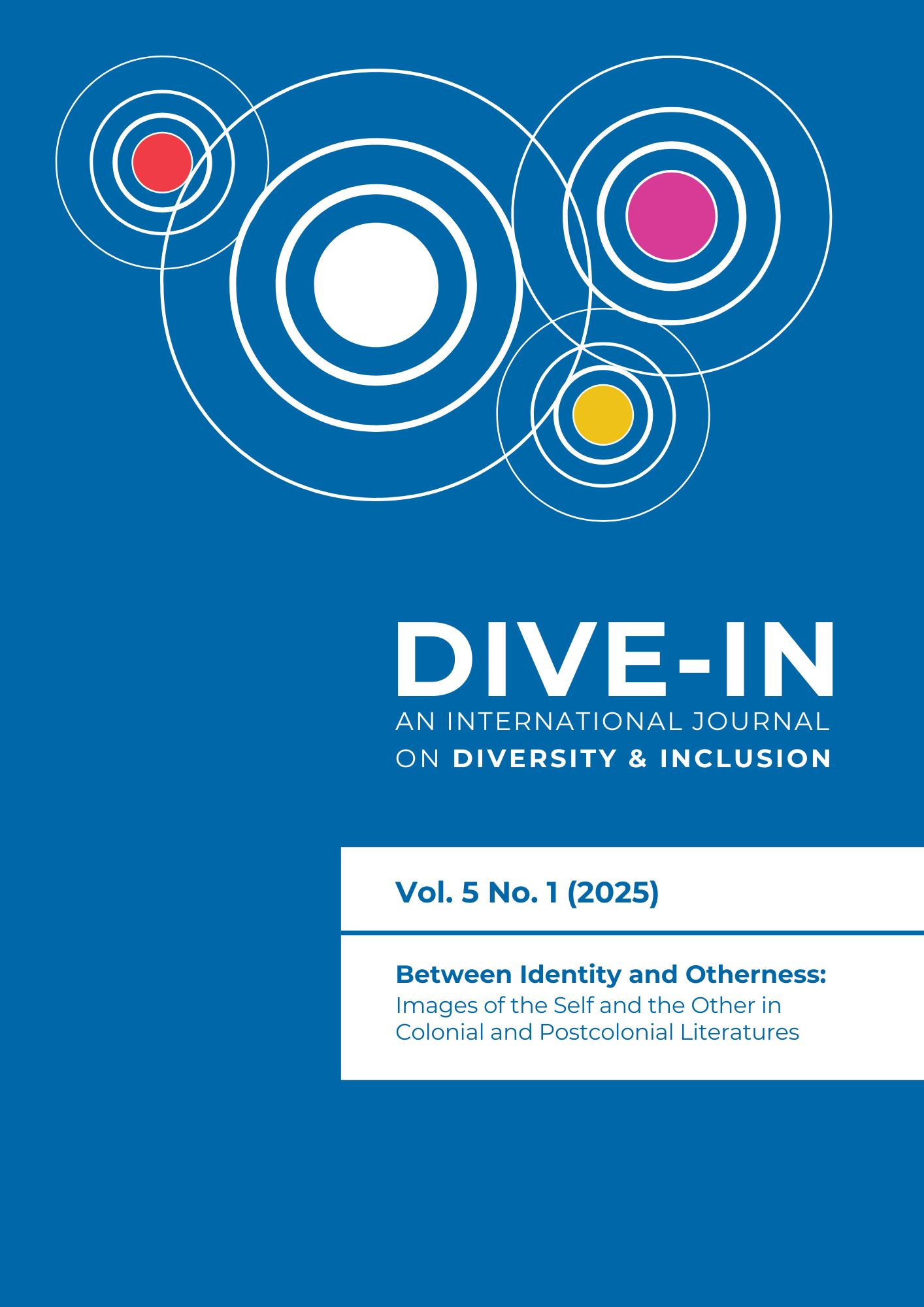Reimagining the Past and Rethinking the Other: The Significance of Creative Historical Revision in Bernardine Evaristo’s The Emperor’s Babe (2001) and Blonde Roots (2008)
DOI:
https://doi.org/10.6092/issn.2785-3233/22206Keywords:
uchronia, otherness, alternate history, postcolonialAbstract
In The Emperor’s Babe (2001) and Blonde Roots (2008), Bernardine Evaristo employs historical revision and counter-discursive narrative techniques to rethink the paradigm of self and Other. At the forefront of contemporary postcolonial feminist literature, Evaristo uses humor and personal stories to address contemporary cultural issues. Her novels challenge Western historical narratives, which have often been constructed to reinforce specific ideologies and structures of power. Evaristo's use of the alternate history or uchronia genre offers a way to reimagine historical moments, particularly those of Roman ruled Britain and the transatlantic slave trade, revealing alternative possibilities and highlighting the experiences of those often erased in traditional historical accounts. Through intersectional feminist close readings, this paper examines how Evaristo subverts epic and utopian narrative structures and questions entrenched notions of race, gender, and identity while providing new ways to understand history and its impact on global social dynamics.
References
Anderson, Benedict. 2006. Imagined Communities. London: Verso.
Burkitt, Katharine. 2012. “Blonde Roots, black history: History and the form of the slave narrative in Bernardine Evaristo’s Blonde Roots.” Journal of Postcolonial Writing 48(4), 406-417.
Collins, Michael. & Bernardine Evaristo. 2008. “‘My Preoccupations Are in My DNA’: An Interview with Bernardine Evaristo.” Callaloo 31(4), 1199–1203.
Cuder-Domínguez, Pilar. 2004. “Ethnic Cartographies of London in Bernardine Evaristo and Zadie Smith.” European Journal of English Studies 8(2), 173-188.
Dagbovie-Mullins, Sika A. 2017. “Neo-S(k)in Trade: White Skin, Black Bodies in Bernardine Evaristo’s Blonde Roots.” Palimpsest: A Journal on Women, Gender, and the Black International 6(1), 1-27.
Duncan, Andy. 2003. “Alternate history.” In Edward James & Farah Mendlesohn (eds.), The Cambridge Companion to Science Fiction, 209–218. Cambridge: Cambridge University Press.
Evaristo, Bernardine. 2002. The Emperor’s Babe. London: Penguin Books.
Evaristo, Bernardine. 2009. Blonde Roots. London: Penguin Books.
Gilroy, Paul. 1993. The Black Atlantic: Modernity and Double Consciousness. London: Verso.
Hall, Stuart. 1996. “New Ethnicities.” In Kuan-Hsing Chen & David Morley (eds.), Stuart Hall: Critical Dialogues in Cultural Studies, 441-449. London: Routledge.
Hooper, Karen & Bernardine Evaristo. 2006. “On the Road: Bernardine Evaristo interviewed by Karen Hooper.” Journal of Commonwealth Literature 41(1), 3–16.
Iromuanya, Julie. 2017. “Humor as Deconstructive Apparatus in Bernardine Evaristo’s Blonde Roots.” Callaloo 40(4), 174-182.
McConnell, Justine. 2016. “Crossing Borders: Bernardine Evaristo’s The Emperor’s Babe.” Callaloo 39(1), 103–114.
Newman, Judie. 2012. “The Black Atlantic as Dystopia: Bernardine Evaristo's Blonde Roots.” Comparative Literature Studies (Urbana) 49(2), 283–297.
Nietzsche, Friedrich. 1976. The Portable Nietzsche / selected and translated, with an introduction, prefaces, and notes, by Walter Kaufmann. Harmondsworth: Penguin Books.
Rosenfeld, Gavriel. 2002. “Why Do We Ask “What If?” Reflections on the Function of Alternate History.” History and Theory 41(4), 90–103.
Roynon, Tessa. 2017. “Constructing Selfhood Through Re-Voicing the Classical Past: Bernardine Evaristo, Marlene Nourbese Philip, and Robin Coste Lewis.” Angelaki : Journal of Theoretical Humanities 22(1), 137–152.
Schneider-Mayerson, Matthew. 2009. “What Almost Was: The Politics of the Contemporary Alternate History Novel.” American Studies 50(3/4), 63–83.
Suvin, Darko. 1983. “Victorian Science Fiction, 1871-85: The Rise of the Alternative History Sub-Genre.” Science Fiction Studies 10(2), 148–169.
Thomas, Ebony Elizabeth and Amy Stornaiuolo. 2016. “Restorying the Self: Bending toward Textual Justice.” Harvard Educational Review 86, 313– 338.
Tiffin, Helen. 1987. “Post-Colonial Literatures and Counter-Discourse.” Kunapipi 9(3), 17-34.
Tiffin, Helen. 1997. “Colonialist Pretexts and Rites of Reply.” The Yearbook of English Studies 27, 219–233.
White, Hayden. 1973. The Historical Imagination in Nineteenth-Century Europe. Baltimore: Johns Hopkins University Press.
Downloads
Published
How to Cite
Issue
Section
License
Copyright (c) 2025 Evangeline Scarpulla

This work is licensed under a Creative Commons Attribution 4.0 International License.





